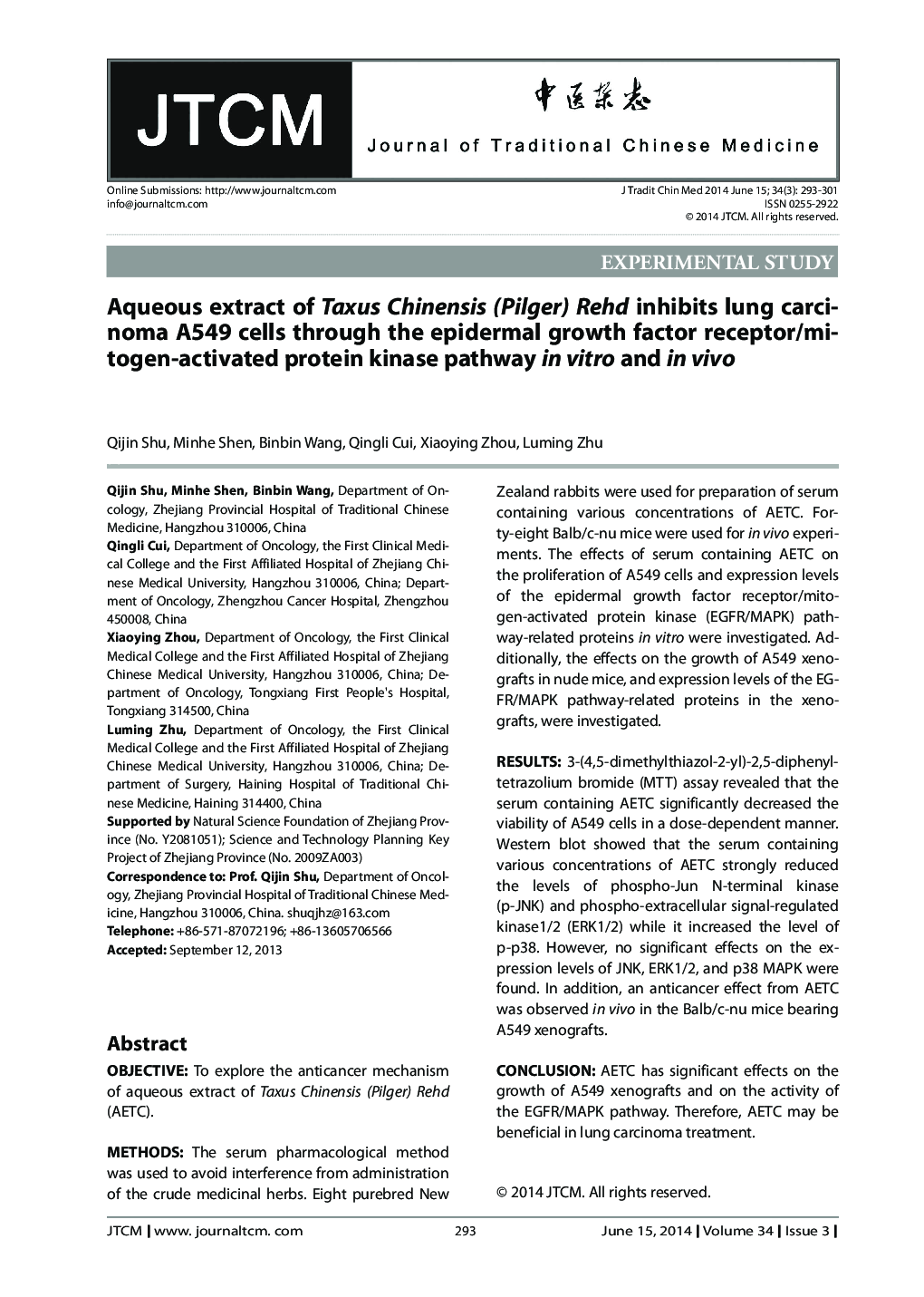| کد مقاله | کد نشریه | سال انتشار | مقاله انگلیسی | نسخه تمام متن |
|---|---|---|---|---|
| 4201063 | 1279388 | 2014 | 9 صفحه PDF | دانلود رایگان |

ObjectiveTo explore the anticancer mechanism of aqueous extract of Taxus Chinensis (Pilger) Rehd (AETC).MethodsThe serum pharmacological method was used to avoid interference from administration of the crude medicinal herbs. Eight purebred New Zealand rabbits were used for preparation of serum containing various concentrations of AETC. Forty-eight Balb/c-nu mice were used for in vivo experiments. The effects of serum containing AETC on the proliferation of A549 cells and expression levels of the epidermal growth factor receptor/mitogen-activated protein kinase (EGFR/MAPK) pathway-related proteins in vitro were investigated. Additionally, the effects on the growth of A549 xenografts in nude mice, and expression levels of the EGFR/MAPK pathway-related proteins in the xenografts, were investigated.Results3-(4,5-dimethylthiazol-2-yl)-2,5-diphenyltetrazolium bromide (MTT) assay revealed that the serum containing AETC significantly decreased the viability of A549 cells in a dose-dependent manner. Western blot showed that the serum containing various concentrations of AETC strongly reduced the levels of phospho-Jun N-terminal kinase (p-JNK) and phospho-extracellular signal-regulated kinasel/2 (ERK1/2) while it increased the level of p-p38. However, no significant effects on the expression levels of JNK, ERK1/2, and p38 MAPK were found. In addition, an anticancer effect from AETC was observed in vivo in the Balb/c-nu mice bearing A549 xenografts.ConclusionAETC has significant effects on the growth of A549 xenografts and on the activity of the EGFR/MAPK pathway. Therefore, AETC may be beneficial in lung carcinoma treatment.
Journal: Journal of Traditional Chinese Medicine - Volume 34, Issue 3, June 2014, Pages 293-301